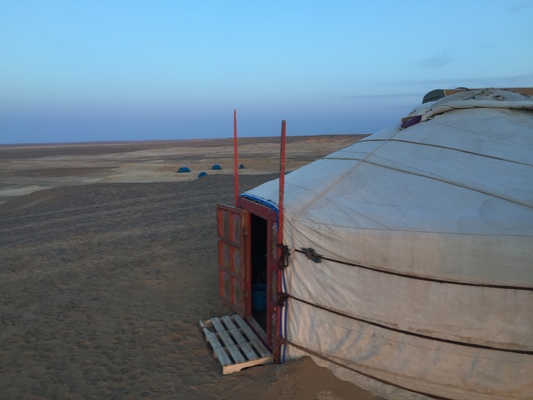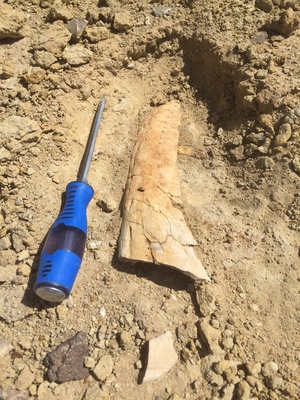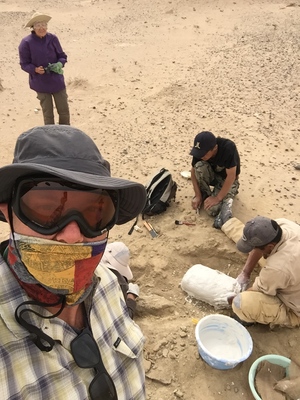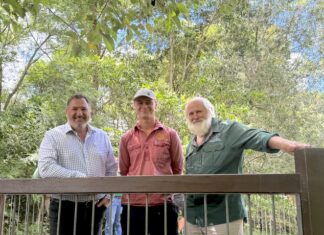By KATIE DE VERTEUIL
WHEN local pharmacist Clint Coker began researching the price of dinosaur eggs for his curious four-year-old granddaughter, he did not think he would find himself travelling to the Gobi desert to find his own.
However that is indeed what happened, the Noosa resident last month taking the journey of a lifetime on the unique ‘Dinosaurs of the Gobi Expedition’.
The 16-day trip had been organised by Odyssey Travel and was hosted by editor of Australian Geographic John Pickrell.
Accompanied by Mr Pickrell, and palaeontologist Dr Tsogtbaatar from the Mongolian Academy of Sciences, Clint joined three other Queensland travellers all eager to visit sites of previous dinosaur discoveries.
Describing the adventure as a giant treasure hunt, Clint and the team spent nine days in the East Gobi desert prospecting for and excavating fossils. Flying to Ulaanbaatar the capital of Mongolia, the first day was spent visiting the Institute of Palaeontology in Ulaanbaatar where finds are processed for the new museum.
“From Ulaanbaatar we flew south to an airstrip servicing a new mine in the East Gobi, driving two to three hours following obscure tracks in the sand and gravel to base camp,” Clint said.
“This consisted of an expedition truck and trailer, a relic from a soviet expedition, one Gir and some small tents which only survived the first night.
“Numerous sand and dust storms forced our retreat to the Gir – a traditional nomadic round tent made of folding wooden walls with a heavy felt outer covering.
“We were advised to prepare for temperatures ranging from -5 degrees at night, strong winds and sandstorms and that’s pretty much what we got with temperatures during the trip ranging from 0 to 45 degrees.
“This interspersed with some reasonably comfortable daytime temperatures, days with little or no wind and amazingly clear evenings… inky black with various stars and constellations easily identified.”
Miles from anywhere, Clint and his team spent the next nine days prospecting for and collecting fossils for the Institute of Palaeontology’s collections.
“On the very first day we found numerous fossils and two of my fellow travellers, who unlike me had some prior experience in Winton and Richmond searching for dinosaur specimens, were gob smacked,” Clint said.
“Not only with the number and quality of fossils found but with the fact that the majority were simply photographed, had the GPS co-ordinates noted and covered up.”
Faced with sandstorms, ticks, scorpions, the inconvenience of a drop dunny with hessian surround that kept blowing away and an outdoor five-litre pump shower with cold water, Clint said the experience certainly wasn’t your usual vacation.
“All in all it was an amazing cultural experience,” Clint said.
“I feel extremely fortunate to have been given this opportunity and would encourage anyone interested to keep an eye out for any upcoming trips.”











